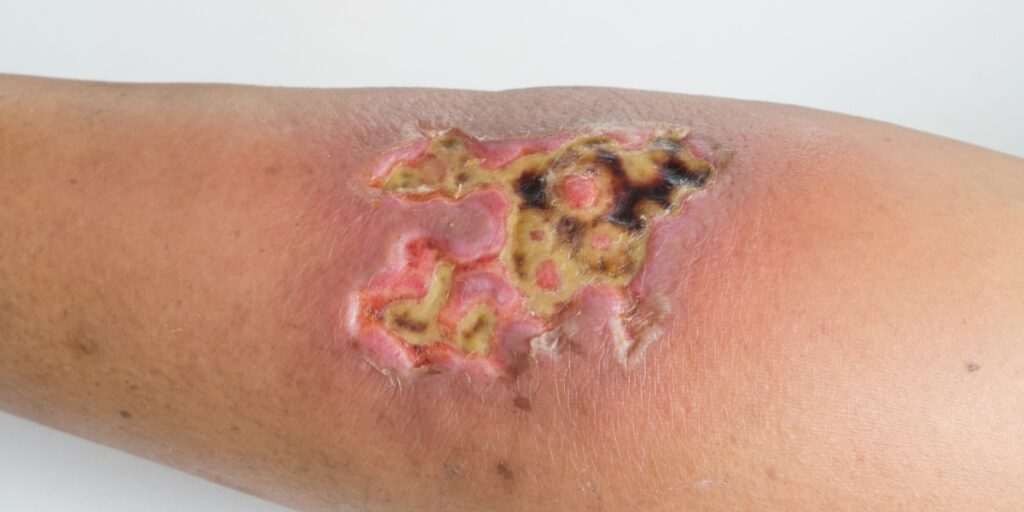Effective Heroin Addiction Treatment

Developing an addiction to opioids like heroin doesn’t happen overnight; neither does successful heroin addiction treatment. Clinically, heroin addiction is an opioid use disorder. Opioid use disorders are an escalating pattern of opioid abuse leading to recurring distress and problems related to substance abuse.
Many people addicted to heroin started out using prescription painkillers or less addictive and potent drugs, but as their tolerance increased, they sought more powerful, more accessible drugs. The longer an opioid use disorder goes untreated, the more difficult it is to overcome. However, as medical professionals have gained a better understanding of addiction, effective treatments for opioid dependence and addiction have progressed and become more accessible and successful.
What Is Heroin?
Heroin is an illegal, highly addictive opioid drug made from parts of poppy plants. Heroin binds to opioid receptors in the brain and releases a flood of powerful, pleasurable effects throughout the body.
The majority of heroin sold in the United States is under 60% pure, having been cut will filler substances and other drugs to increase profit and potency. As dealers scramble to stay ahead of law enforcement agencies and keep a steady supply, new processing techniques and additives yield various types of heroin, including traditional powdered heroin, black tar heroin, and a new class called synthetic heroin or tranq dope.
In the United States, all heroin is a schedule I controlled substance, meaning it has no medical use and high abuse and addiction potential. Besides appearance and cost, the main difference between the different types of heroin is the potency and availability based on geographical location. Heroin can be snorted, smoked, or injected, except for black tar heroin, which has a consistency that only allows for injection.
Common street names for heroin include:
- H
- Smack
- Angel dust
- Good H
- China white
- Dirt
- Diesel
- Black tar
- Mexican mud
- Salt
- Dragon
Long-Term Effects of Heroin Addiction
The long-term effects of heroin are less well-known and discussed than the immediate and short-term risks and side effects. Unfortunately, many people who struggle with substance abuse don’t live long enough to develop long-term effects or to have a chance at recovery. However, just as many people live to see various stages of addiction and recovery, with lasting effects from heroin addiction.
Long-term effects of heroin addiction include:
- Weightloss
- Malnutrition
- Liver damage
- Kidney Damage
- Infected heart valves and lining
- Lung infections
- Chronic pneumonia
- Collapsed veins
- Injected abscesses and injection sites
- Stomach ulcers
- Slow healing wounds
- Botulism
- Hair loss
- Dental decay
- Sexual dysfunction
- Infertility
- Depression
- Anxiety
- Blood clots
- Arthritis
- Muscle loss
- Cognitive decline
- Brain damage
- Memory loss
- Mood regulation disorders
- Increased risk of stroke and heart attack
There is an increased likelihood of injection drug users contracting HIV, hepatitis, and other contagious diseases from sharing equipment and engaging in risky sexual behaviors.
Despite some lingering stigmas of addiction and IV drug use, medical advancements have ensured that with proper treatment, people can manage their long-term effects of heroin addiction in ways that allow long, healthy lives.

Withdrawal Symptoms
Heroin withdrawal symptoms are some of the most intense and challenging to overcome. The reason heroin is so addictive is how quickly the body adapts to its presence and relies on it; abruptly quitting heroin throws the chemical balance into chaos, causing withdrawal. Symptoms of withdrawal range from uncomfortable to unbearable and will vary for everyone based on the length and severity of their addiction.
Heroin withdrawal symptoms include:
- Headache
- Nausea
- Vomiting
- Sweating
- Drug cravings
- Shaking or tremors
- Abdominal cramping
- Diarrhea
- Muscle soreness
- Joint and bone pain
- Sensitivity to light and sound
- Chills
- Flu-like symptoms
- Slowed or labored breathing
- Changes in heart rate and blood pressure
- Dizziness
- Fatigue
- Irritability
- Changes in sleeping pattern
- Depression
- Anxiety
- Suicidal thoughts
In rare cases, people may experience seizures or dehydration. Unfortunately, most people who attempt to quit heroin cold turkey without support or a proper treatment plan end up relapsing in the face of severe withdrawal symptoms. While there is no way to skip over the withdrawal process, help is available to ensure it is safe and the worst symptoms are alleviated.
If you are worried withdrawal will be overwhelming, you should discuss medical detox with your doctor or a professional treatment center. Regardless of how you overcome heroin withdrawal, it is only the first step in addressing heroin addiction. Following detox, drug addiction treatment approaches that address the other aspects of addiction are necessary for success in a lasting recovery.
Evidence-Based Treatments for Heroin Addiction
The National Institute on Drug Addiction (NIDA) recognizes heroin addiction as a complex brain disease with multiple dimensions requiring evidence-based substance abuse treatment to address the mental, physical, lifestyle, and behavioral aspects. NIDA established the guiding principles of effective addiction treatment to provide a reliable resource for people seeking treatment programs and for treatment providers about what is needed and what to expect throughout the recovery process and the long term. Some essential elements required to treat opioid and heroin addiction are listed below.
Individualized Treatment Plans
Every person and their circumstances are unique, requiring a treatment plan that recognizes and caters to those needs, goals, and abilities. Many have obstacles to getting treatment in their daily lives and benefit the most from residential treatment, where their treatment plan can evolve with their progress and needs rather than outpatient treatment. A crucial part of individualized treatment plans is developing a relapse prevention plan for each person’s challenges once they complete treatment.
Medication-Assisted Treatment (MAT)
Medication-assisted treatment (MAT) or medical maintenance helps to address the effects of chemical imbalances caused by heroin addiction and heroin withdrawal. Treatment teams use FDA-approved types of medication, like naltrexone and buprenorphine, in combination with other therapies to help relieve withdrawal symptoms and reduce cravings.
Some medicines are opioid agonists, meaning they block opioids from attaching to receptors and having any effects; these can be short-acting or long-acting, depending on what doctors decide as the best course of treatment. MAT is not replacing one drug with another; it is an FDA-approved, evidence-based treatment necessary for progress.
Cognitive Behavioral Therapy (CBT)
Cognitive behavioral therapy (CBT) explores the relationship between emotions and thoughts and how the resulting behaviors contribute to addiction. Working closely with a trained therapist, people work to change their thought patterns and reactions to things while learning positive coping skills, habits, and relapse prevention strategies and techniques. There are a variety of behavioral therapies, including trauma-informed, to address specific needs and what works best for each person.
Dual Diagnosis
Dual diagnosis recognizes and addresses the link between mental health conditions and addiction. The symptoms of mental health issues and substance use disorders are similar and can feed off each other, making it crucial to separate and treat both factors individually and simultaneously. Dual diagnosis helps people to come to terms with their mental health struggles and develop healthy ways to manage them without resorting to substance abuse.

Evidence-Based Treatment Plans at Northridge Addiction Treatment Center
If you are ready to overcome heroin addiction, Northridge Addiction Treatment Center can help you every step of the way to meaningful, life-long recovery.
Our private, peaceful residential treatment center specializes in evidence-based care with custom-tailored treatment plans to fit each resident’s unique needs and circumstances.
Reach out to us today. Our compassionate treatment specialists are eager to get you on your path to recovery.
Find Meaningful Recovery
Our caring and compassionate specialists are eager to help you comfortably navigate this journey to recovery. Our individualized treatment plan, programs, and therapies may be a perfect match for you or your loved one. Let us assist you in living the happy life you deserve. It starts with a phone call.




